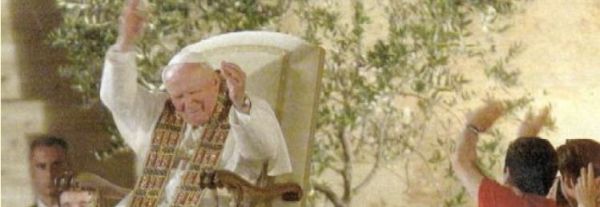4. In fact, Jesus invites us to discern the words and deeds which bear witness to the imminent coming of the Father’s kingdom. Indeed, he indicates and concentrates all the signs in the enigmatic “sign of Jonah”. By doing so, he overturns the worldly logic aimed at seeking signs that would confirm the human desire for self-affirmation and power. As the Apostle Paul emphasizes: “Jews demand signs and Greeks seek wisdom, but we preach Christ crucified, a stumbling block to Jews and folly to Gentiles” (1 Cor 1:22-23).
As the first-born among many brethren (cf. Rom 8:29), Christ was the first to overcome in himself the diabolic “temptation” to use worldly means to achieve the coming of God’s kingdom. This happened from the time of the messianic testing in the desert to the sarcastic challenge flung at him as he hung upon the cross: “If you are the Son of God, come down from the cross” (Mt 27:40). In the crucified Jesus a kind of transformation and concentration of the signs occurs: he himself is the “sign of God”, especially in the mystery of his Death and Resurrection. To discern the signs of his presence in history, it is necessary to free oneself from every worldly pretense and to welcome the Spirit who “searches everything, even the depths of God” (1 Cor 2:10).
[Pope John Paul II, General Audience 23 September 1998]












